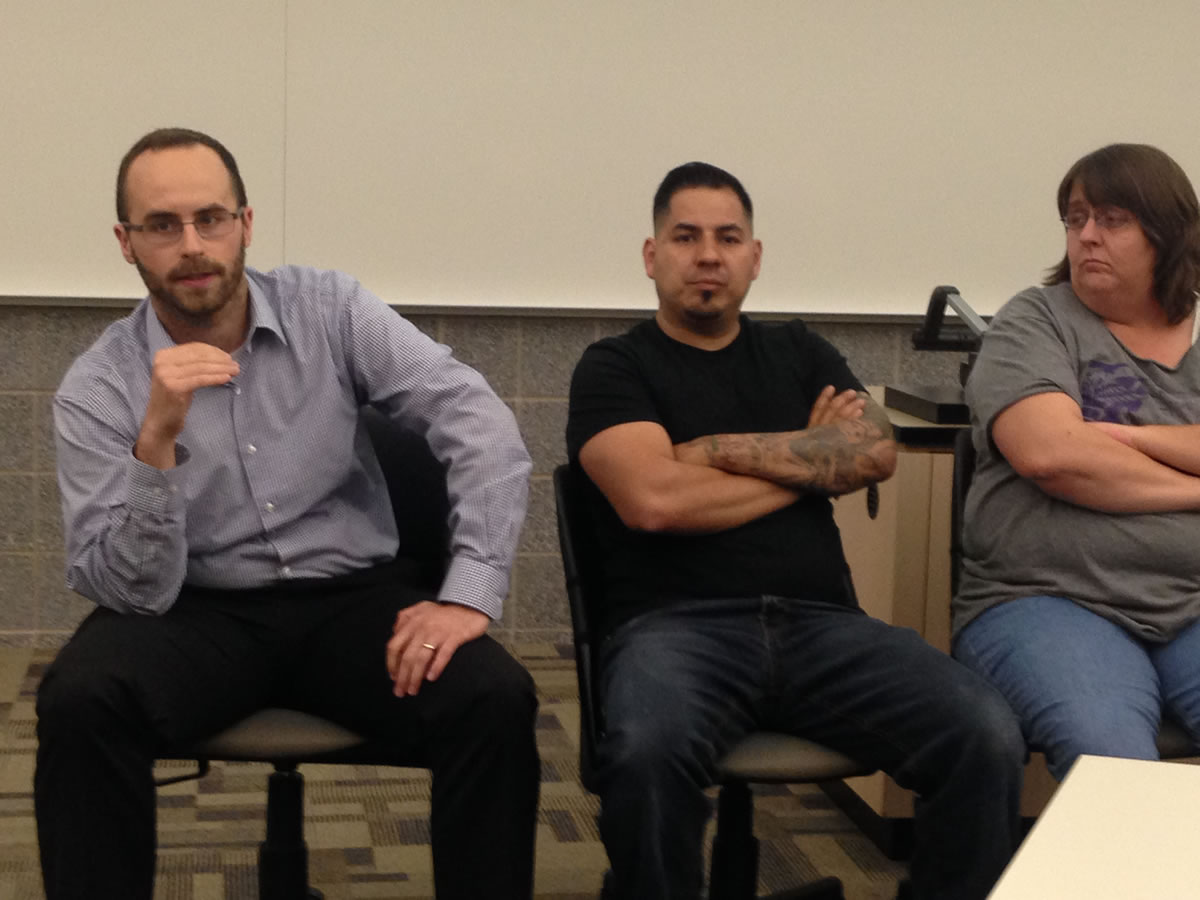

Share
Several Minnesota labor and community organizations are forming a coalition to combat the growing problem of wage theft that costs workers millions of dollars every year.
The coalition will hold its first meeting Tuesday, June 7, from 3 to 4 p.m. at the offices of CTUL, Centro de Trabajadores Unidos en Lucha/Center of Workers United in Struggle, 2511 E. Franklin St., Minneapolis. Interested organizations are encouraged to send a representative.
Groups in the coalition include CTUL, a Minneapolis-based worker center; North Central States Regional Council of Carpenters; Minneapolis Regional Labor Federation; SEIU Healthcare Minnesota; SEIU State Council and the University of Minnesota Labor Education Service, which publishes Workday Minnesota.
Formation of the coalition was prompted by Workday’s recent series exposing the many forms of wage theft and discussing possible solutions.
On June 2, workers who have had their wages stolen spoke at a public forum sponsored by the coalition members and the Center for Human Resources & Labor Studies in the University’s Carlson School of Management.
Robin Pikala, a home health care worker, continued to work even as her paychecks bounced.
“I couldn’t leave my clients,” she said. “They didn’t have anyone else.”
Eventually her employer, Crystal Care, declared bankruptcy. “A total of $1.4 million was owed to 600 employees,” Pikala said. “If it was you or I, we would be in jail if we robbed the state of $1.4 million.”
Workers from construction, retail and the hospitality and cleaning industries had similar stories. They described being forced to work “off the clock” for no pay, not being compensated for overtime hours and simply not getting paid at all.
Kerry Jo Felder worked as a restaurant server for 25 years and saw her wages docked when customers walked out without paying or a dish was broken. “There are different ways that money is taken away from servers,” she said.
Felder also worked at a store where she was required to punch in 15 minutes early without pay. The minutes – and lost wages – add up after weeks and months, she noted.
A common theme at the forum was the fact that many industries count on stealing wages from workers to fatten their bottom lines.
Wage theft “is an intentional business model,” said Jonathan Reiner, union representative for the North Central States Regional Council of Carpenters.
The Carpenters call this business model, used widely in residential construction and on many commercial projects, “payroll fraud.” It is based on a complex system of subcontracting where workers are independent contractors and no one is an employee. Contractors and developers evade their responsibility to pay overtime, unemployment compensation, workers’ compensation, taxes and more, Reiner said.
Lucila Dominguez cleaned restaurants and stores, was never paid overtime and had to provide her own mop and cleaners. “They would always say you are an independent contractor and that is why you have to pay for your own materials.”
By organizing through CTUL, she and her co-workers won back hundreds of thousands of dollars in lost wages. They also mounted a successful campaign to hold Target Corporation accountable for the practices of its cleaning contractors.
Organizing was one solution discussed at the forum. Others included:
- Better education among workers and the community
- Better enforcement of existing laws against wage theft
- Penalties for employers who steal wages
- Placing the burden of proof on employers to document they are complying with the law
- Publicizing good employers through a certification process
- Forming more unions
- Giving workers a stronger voice on the job
The new wage theft coalition will focus on identifying and implementing solutions.
“We want to get to the root of why wage theft happens” and not just “put out fires,” said Brian Merle Payne, co-director of CTUL.

